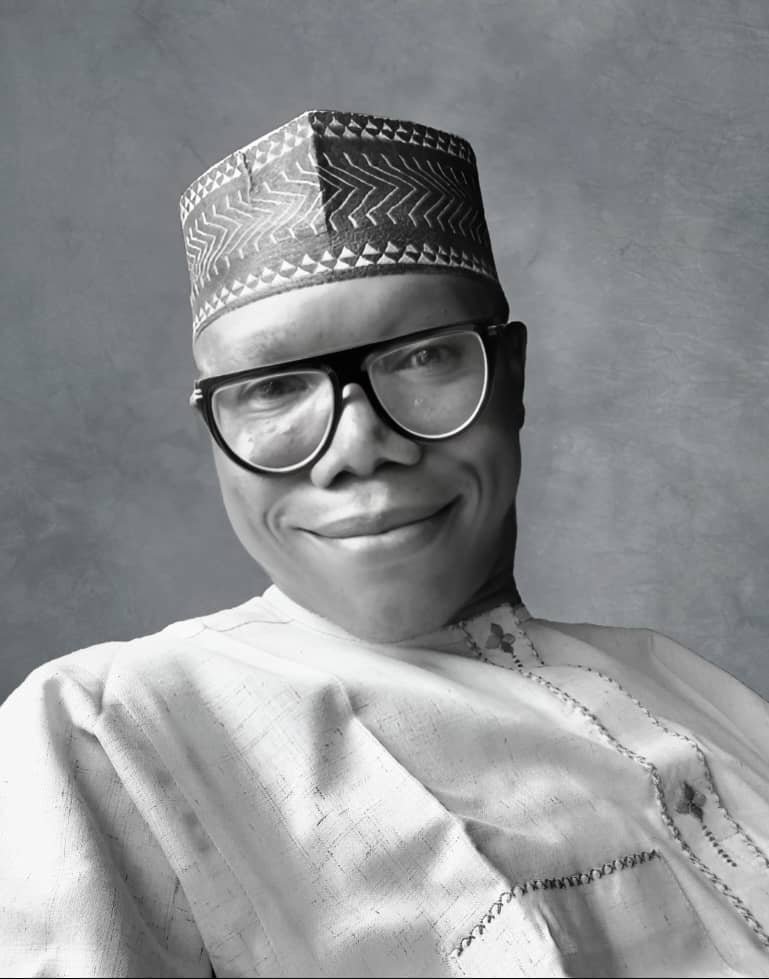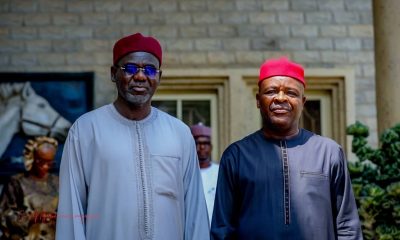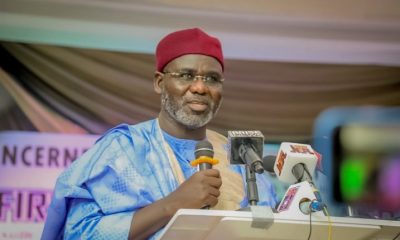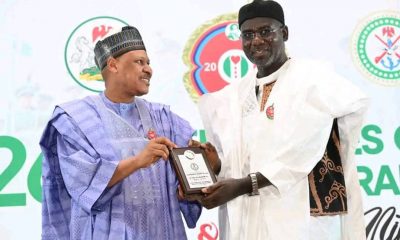celebrity radar - gossips
The Transformative Leadership of General Tukur Yusufu Buratai, CFR: A Case Study for Military Leaders in Africa
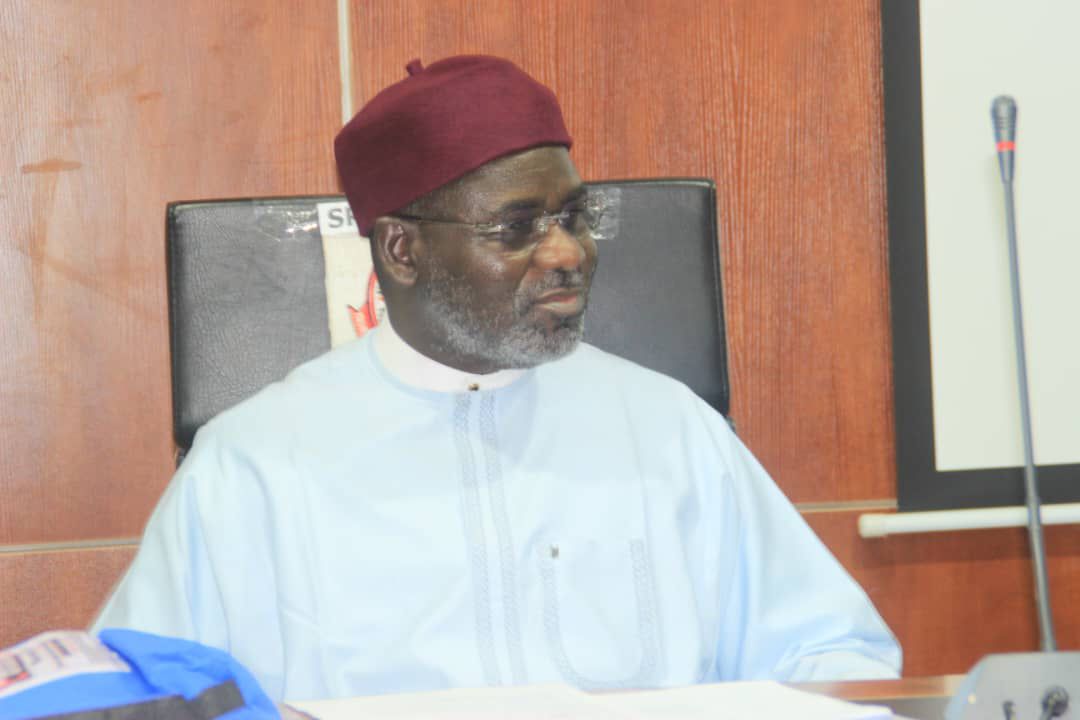
The Transformative Leadership of General Tukur Yusufu Buratai, CFR: A Case Study for Military Leaders in Africa
MS Abubakar, PhD,CAS,FICRPC
1. Introduction to General Tukur Yusufu Buratai and the Context of Military Leadership in Africa
This case study presents a comprehensive analysis of the transformative leadership of General Tukur Yusufu Buratai,CFR, a highly respected military leader with a distinguished background in peacekeeping and conflict resolution who has devoted his entire professional life to the noble cause of public service. General Tukur Yusufu Buratai’s remarkable life experiences and extensive knowledge stand as a powerful testament to what an effective, ethical, and visionary leader can achieve in the face of adversity and challenges. He embodies the demographic, personal, and intellectual qualities that African nations, as well as other developing countries, are actively seeking in their military leaders to guide them toward stability and progress. Furthermore, this study delves into an exploration of the broader context within which generals operate, shedding light on the complex and often difficult decisions and actions they must undertake on a regular basis in their leadership roles. The findings and insights contained within this study are intended to serve as a valuable resource for both military academics and practitioners engaged in the critical field of leadership development. Africa, in particular, stands out as perhaps the most significant region where military leaders occupy a prominent and influential place in the socio-political and economic management of their nations, especially in the midst of ongoing conflicts and wars. This prominence can be attributed to the unique historical background of the states and their peoples, which shapes the dynamics of military leadership and its impact on national stability and growth.
2. Key Principles and Strategies of Transformative Leadership Demonstrated by General Tukur Yusufu
The experiences of General Tukur Yusufu Buratai provide an interesting case study in what makes some military leaders examples of transformative leaders. The strategies and principles that led him to be considered a transformative leader are: 1. Promoting adaptability and being open to new innovative concepts and strategies. 2. Making participation more inclusive. 3. Visualizing the strategic endpoint or vision and using that to inspire change in the organization. 4. Using collaboration and building trust to support the operational needs of the army. 5. Recognizing that not all change to the army was intended. He focused a significant amount of his change effort on bolstering the good organization of his peers in order to help the army build resilience in the face of the inevitable transformation, firing, and elimination. Army transformation for Buratai was about people and operations – learning, creativity, openness, and change were the underlying principles linking the campaigns he sought. This further examines the principles and strategies of General Buratai’s force shaping campaign in Chad and Nigeria and the organizational culture initiatives. At each step, case studies and detailed operational narratives will be used to illustrate the application of Buratai’s military leadership principles and the military techniques that he developed as part of his efforts. In doing so, I hope to provide a contribution to the understanding of military officers and security sector reformers working in Africa today by not only describing Tukur Yusufu Buratai, but also critically examining who he was with and why this matters.
3. Impact and Legacy of General Tukur Yusufu’s Leadership on the Military and Society in Africa
The influence and impact of General Tukur Yusufu Buratai’s leadership transcended the military structures that he transformed during his tenure as the Chief of Army Staff. Through vision, strategic direction, creativity, perception, and above all, personal commitment, General Buratai refashioned the conduct of African military institutions. He transformed command cultures, doctrine, and operational strategies for increased military capabilities and responsiveness. Moreover, his style and instincts bestowed a lasting legacy upon the societies across Africa. He invested in the persons behind the uniforms. It is in these societal changes that this narrative locates some of the unique leadership tenets that each of Buratai’s activities relates to. A detailed approach to his initiatives will demonstrate how and why African soldiers consider Tukur Yusufu Buratai the foremost military leader in Africa and value his ideas and decade-long experimentation in military leadership.
General Tukur Yusufu Buratai undertook performance demonstrations despite the skepticism and opposition surrounding the initiatives. His dedication reflected a desire to enhance community engagement and fulfill social responsibilities, effectively linking military operations and their potential risks to civilian lives and livelihoods. The subsequent sections will detail and analyze the reforms he independently implemented within military structures and practices aimed at societal peace during his tenure as the second senior officer of the Nigerian Armed Forces. This narrative will adopt a pragmatic lens to evaluate the sincerity of his leadership commitment.
The impact of Tukur Yusufu Buratai’s leadership is evident within the Nigerian Army and throughout Africa (Chad,Cameroon,The Gambia, Sudan,Angola, Rwanda, South Africa etc). Through both minor interventions and significant military strategies and policy reforms enacted during his service, he exhibited profound insight and capability in ethical leadership alongside a relentless pursuit of reform. His innovative approach and investment in human talent transformed social dynamics as the professional military spearheaded operations across Africa. Socio-political discourse highlighted Buratai’s dedication and accountability, earning him widespread recognition. His leadership period in the Nigerian Army popularized the notion of linking military achievement with societal transformation. He redefined command in an unprecedented manner and scale, remaining resolute in aligning army policies and operations with both national and international developments. This unwavering commitment underscores the ongoing relevance of his teachings and discussions in shaping strategies for conflict prevention and resolution within the African sub-region. His concepts have become integral to the strategic framework of Nigeria and Africa, contributing to regional stability and facilitating international partnerships for military observer missions worldwide.
4. Comparative Analysis with Other Prominent Military Leaders in Africa
The General Tukur Yusufu Buratai leadership style also exemplifies the concentrated nature of a military leader. Societies with diverse contextual underpinnings in Africa have been subjugated by leaders who transformed their militaries for good governance. It is also crucial at this juncture to acknowledge prominent military leaders who took over power through a coup d’état in Nigeria. These leaders have also exhibited a leadership stance characterized by coercive methods, failing to institute democratic governance in the military. These lessons raise some fundamental points about the complete development that Tukur Yusufu Buratai brought about in Nigeria.
The cases involving leaders portray military leaders who attempted to transform their militaries in order to influence developmental governance through democracy and human security in their societies. One leader developed a well-recognized gender policy after a revolution in government, achieving significant gains in human capital development in his country. Another recognized the wealth of his society and also disdained disparities. In the cases of Tukur Yusufu Buratai and other African military leaders, we see military leaders consolidating power through repression, leading to an acceleration of state and military system collapse in society. In the above illustrations, the military leaders’ political, social, and cultural positions shaped the society’s politico-military responses to their actions, even as the rupture of systems and the energy produced were chronicled by the history of the era discussed. The comparative treatment of our investigation of these phenomena signifies an important bracket of thoughts in our subsequent analysis, policy implications, and conclusion.
5. Recommendations and Lessons for Current and Future Military Leaders in Africa
From the leadership research evidence, it is clear that General Tukur Yusufu Buratai has used various successful adaptive and transformational leadership practices during his career. Whether or not he was employing a contingency approach is unclear, but there is no doubt that he was an effective peacekeeper and achieved an impressively low conflict rate. To this end, there are several recommendations, insights, and lessons for current and future military and security forces in Africa. Fulfilling a nation’s pledge, army leaders around the world, such as General Buratai, must enhance the military-civilian contribution through participative learning, leadership cultures, and practices in order to achieve the course goals and outcomes. Based on the discussion of the leadership lessons of former Lieutenant General Tukur Yusufu Buratai,CFR, the following are some actions useful for leaders in this modern day.
- One of the most important factors in peace operations is ethical leadership, predisposing leaders and followers to higher levels of cooperation and positive outcomes. 2. Smart collaboration network skills, personal connection to a broader community, and the earlier involvement of key community members, including putting an emphasis on the connections to legitimacy, status, and recognition. 3. The choice of methods is rapidly innovating practices, and instead of relying on recipes or strict methods, organizations and groups of professionals and staff are encouraged to focus on professional development using the best evidence available. 4. The accumulated evidence is that the world is overwhelmed with talk of increasingly wicked problems. Periods of extreme, rapid technological and social change demand cultures of ongoing learning, innovation, and resilience. Highlighting the need for continued professional development and claiming this is in response to the seventh age of the West and global insecurities uncovers the capacity of defense practitioners.
Strategic communication is a core capability and skill to manage perceptions, conversations, improve understanding, and contribute to the strategic ends for groups, organizations, and governments that want to facilitate deeper regional forms of ethical engagement and strategic conversation. In this regard, many armchair critics have not managed military organizations, nor developed doctrine, strategies, or tactics. Clearly, it is an organization that is ready to innovate and improve communication policies and structures, engage with communities, and socialize law-abiding values, necessary to make relevant the significant strategic effects for community security. These will be in the interest of the people, and they are ideals for any organization.
In summary, Tukur Yusufu Buratai consistently demonstrated a deep interest in engaging with individuals, primarily through active listening, and subsequently guiding them toward his vision and leadership objectives. General Buratai is undoubtedly one of the most distinguished Army chiefs to have emerged in Nigeria and Africa. His bravery, innovative approach, transformational leadership style, and effective command and control strategies will serve as enduring benchmarks. He has already become a reference point in numerous military institutions across Nigeria. His unique brand of transformational leadership offers valuable lessons and dimensions for both military and civic leaders. Consequently, the professional insights gained during the Tukur era, while inherently tacit, have also been adapted to align with the rapidly evolving socio-political landscape characterized by insecurity. What is currently needed for leaders in public and social organizations is a comprehensive understanding of how to strategically reposition their organizations to address these challenges. This constitutes the central theme of this text.
MS Abubakar is affiliated with the Department of Military Studies at the Abuja Leadership Centre, University of Abuja. He composed this article from Maiduguri.
celebrity radar - gossips
COAS Ties Battlefield Success to Constitutional Allegiance and Civil Authority

COAS Ties Battlefield Success to Constitutional Allegiance and Civil Authority
During his operational visit to the 4 Special Forces Command in Doma, the Chief of Army Staff, Lieutenant General Waidi Shaibu, delivered a stark message, intertwining the elite unit’s combat effectiveness with an unshakeable pledge of allegiance to President Bola Ahmed Tinubu and the Nigerian Constitution.
While directing troops to intensify high-impact operations, the COAS made it clear that their mission is a direct expression of their constitutional oath. He reaffirmed that the Nigerian Army’s primary role is to defend the nation against external aggression and provide aid to civil authority, all in strict adherence to the supreme law of the land and under the leadership of the Commander-in-Chief.
This emphasis on loyalty served as a powerful backdrop to his operational directives. By linking the “decisive defeat” of terrorists to the Army’s constitutional mandate and loyalty to the President, Lt. Gen. Shaibu sought to galvanise the Special Forces, framing their upcoming engagements not just as military objectives but as a sacred duty to the democratically elected government and the nation’s founding charter. The message was clear: their fight is a fight for the Constitution and the president it empowers.
celebrity radar - gossips
Mercy Johnson Okojie, Purity Okojie Lead Campaign for Girls Tag’s All-in-One Period Care Kit
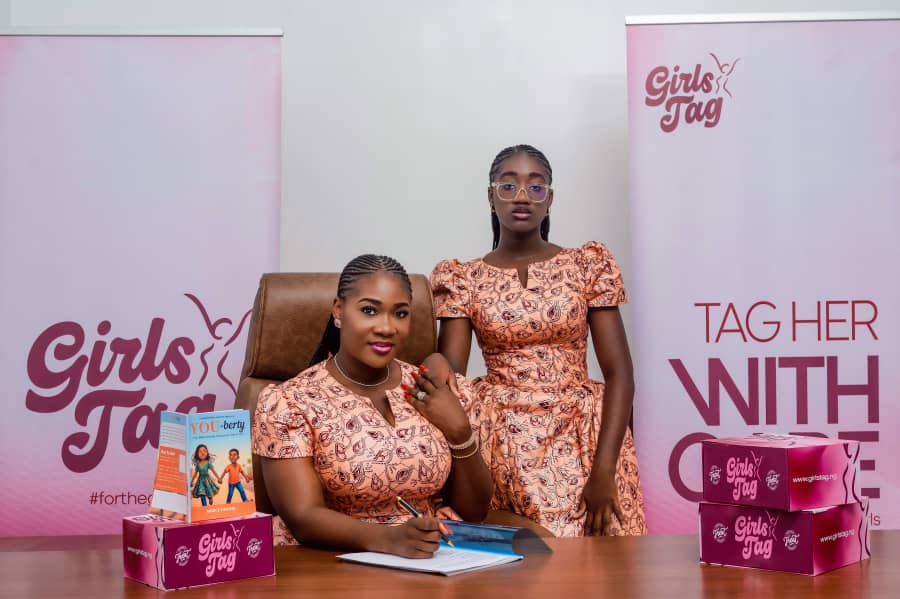
*Mercy Johnson Okojie, Purity Okojie Lead Campaign for Girls Tag’s All-in-One Period Care Kit
iBlend Services, appointed Regional Agency for Girls Tag alongside its PR and marketing firm, Eddie MPR, has officially launched Girls Tag, described as Nigeria’s first all-in-one period care pack designed for girls aged nine and above.
The initiative seeks to tackle persistent gaps in menstrual health education and access to sanitary products in Nigeria, where many girls experience their first period with little preparation or guidance. According to the promoters, Girls Tag was created to eliminate the fear, confusion, and stigma often associated with puberty, replacing them with confidence, comfort, and dignity.
Beyond hygiene, the brand positions itself as a supportive care system for both girls and parents, offering tools and language to guide families through early puberty conversations.
To strengthen its reach, Girls Tag announced a strategic ambassadorial partnership with Nollywood actress and philanthropist Mercy Johnson Okojie and her daughter, Purity Okojie. The mother-daughter collaboration is intended to reflect authenticity and relatability for Nigerian families navigating similar experiences.
Speaking on the partnership, the leadership of iBlend Services expressed confidence that the ambassadors’ real-life connection would resonate deeply with mothers and daughters nationwide.
Mercy Johnson Okojie, in her remarks, described the initiative as a natural fit, noting that puberty can be an anxious period for both parents and children. She also revealed that her newly authored puberty guide, Youberty, will be included in every Girls Tag kit. The book is designed to help boys and girls aged 10 to 13 better understand the physical and emotional changes that come with growing up.
Each Girls Tag care pack contains premium sanitary pads in various sizes, overnight period pants, panty liners, disposable sanitary bags, a discreet sanitary purse, and a copy of Youberty. The kit is tailored to support first-time and early period experiences while promoting proper hygiene and self-care.
The company disclosed that the product will be available nationwide in Q2 2026 at select retail stores, pharmacies, and malls, with direct delivery options through its website and social media handle, @girlstag.ng.
With its combined focus on education, dignity, and accessibility, Girls Tag aims to reshape menstrual health support for young girls across Nigeria.
celebrity radar - gossips
DSS Invites Ogun LG Chairman, Alebiosu and others Over Attack At APC Stakeholders Meeting
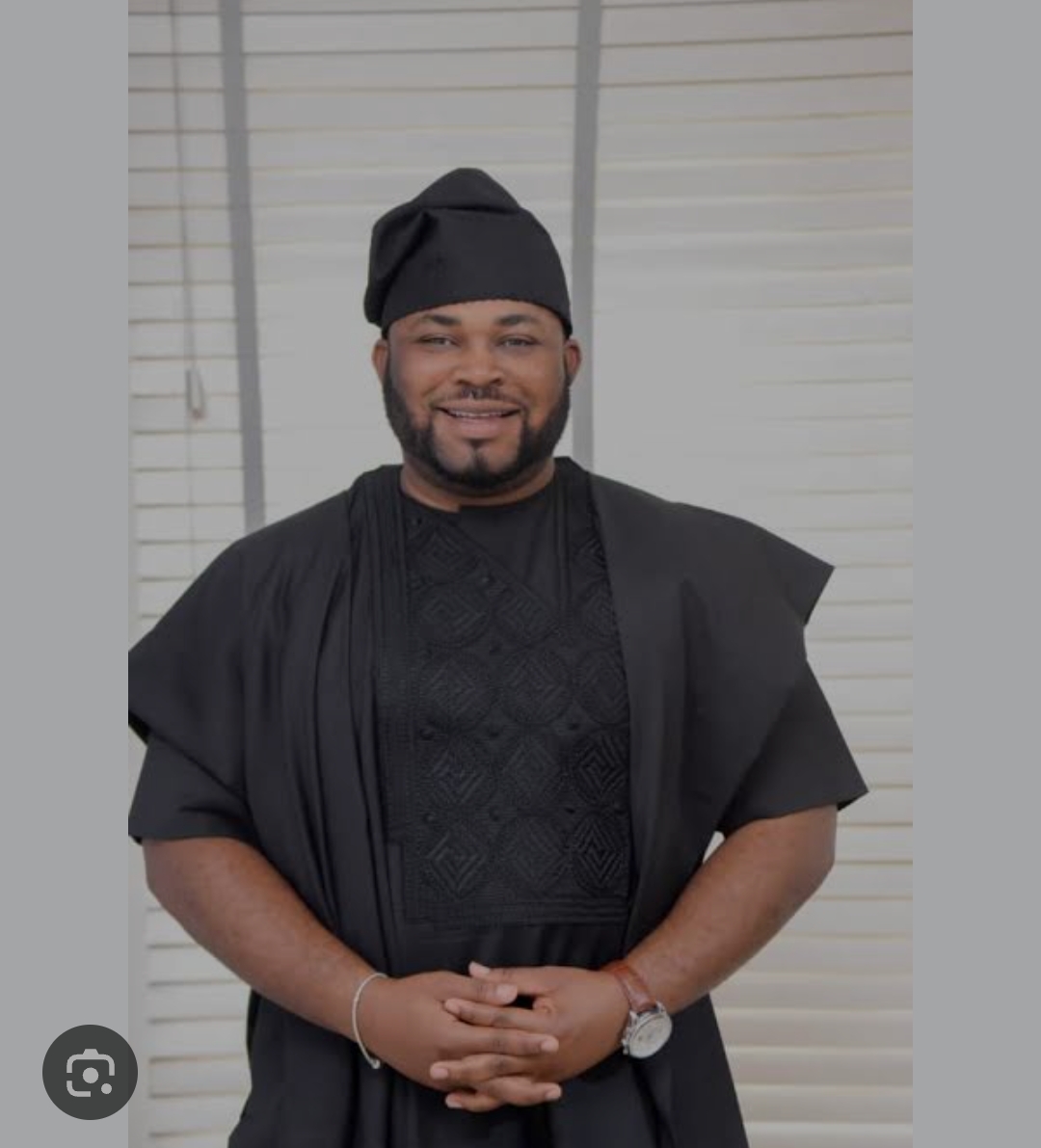
*DSS Invites Ogun LG Chairman, Alebiosu and others Over Attack At APC Stakeholders Meeting*
The Department of State Services (DSS) Abeokuta on Monday invited Ijebu Ode local government Chairman, Hon Dare Alebiosu, and some political thugs alleged to have caused disturbance, incitement and physical attack during an APC stakeholders meeting few days to Ward Congress in the area.
A reliable security source disclosed that an aide of the Governor who was reportedly attacked during the stakeholders meeting was said to have petitioned the DSS.
According to the source, there have been growing concerns over the activities of the LG Chairman, who was alleged to be backing cultists and using them as a tool for harassment and intimidation in the community.
As it was reported, the LG boss was accused to have openly confronted and accused the Governor’s aide for identifying some of the cultists to DSS officials, while one of the cultist was said to have hit their target in the face and removing his medicated glasses. The swift and professional intervention of the Men of DSS quickly deescalated the matter and the meeting went on to a conclusive end.
The meeting which held at the residence of Chief Okuboyejo, the Governor’s Advisory Council Chairman at GRA Ijebu ode became tensed, after the LG chairman invaded the private premises of the old man with a large number of cultists which some of them were allegedly believed to be armed.
The source added that the case is presently with the DSS, while the petitioner has also submitted various evidence against the LG Chairman.
In another turn of event, Commisoner for Urban and regional planning was harassed and robbed, so also the former SLG to the Local govt also almost lost his life as he was attacked with cutlass by thugs who were allegedly said to be led by Dapo Adebajo, he was hospitalized. The case has also been reported to the DSS and Police as at the time of filling this report.
-

 celebrity radar - gossips7 months ago
celebrity radar - gossips7 months agoWhy Babangida’s Hilltop Home Became Nigeria’s Political “Mecca”
-

 society6 months ago
society6 months agoReligion: Africa’s Oldest Weapon of Enslavement and the Forgotten Truth
-

 society7 months ago
society7 months agoPower is a Loan, Not a Possession: The Sacred Duty of Planting People
-

 news3 months ago
news3 months agoWHO REALLY OWNS MONIEPOINT? The $290 Million Deal That Sold Nigeria’s Top Fintech to Foreign Interests

